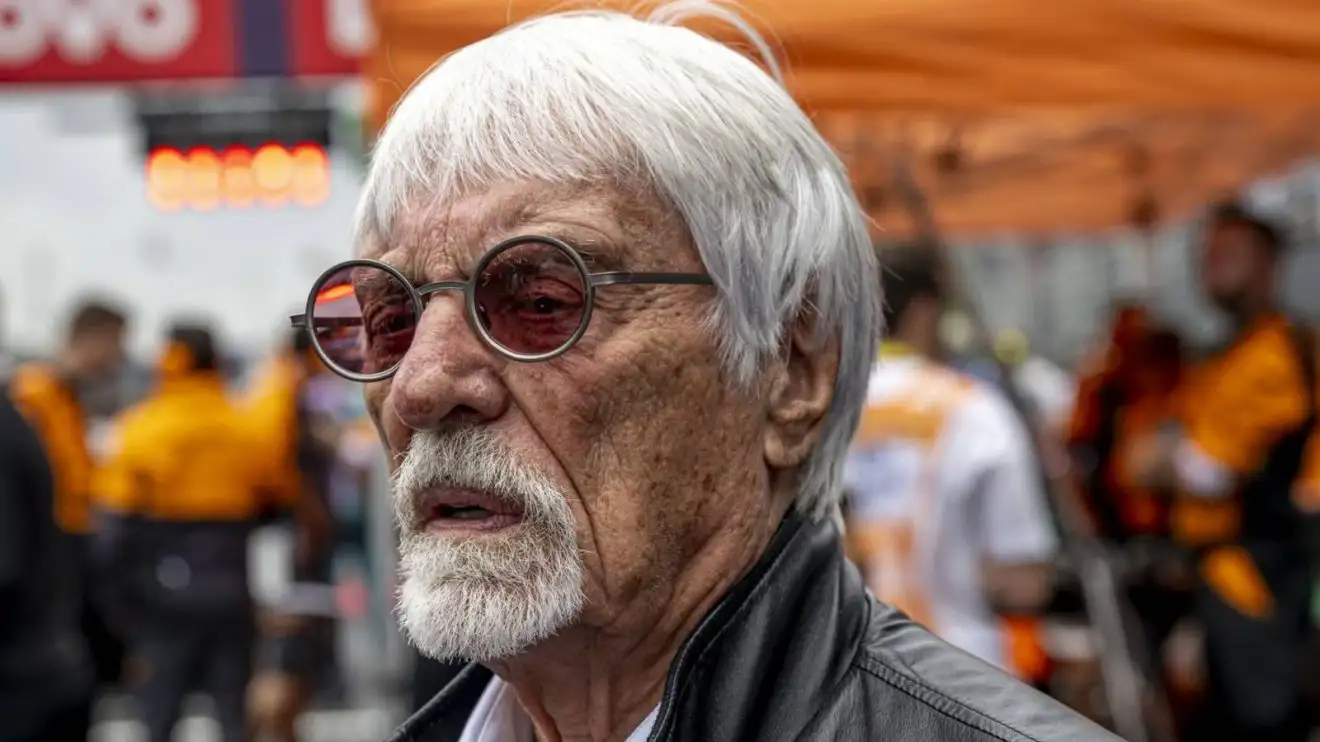Bernie Ecclestone cannot understand why this race remains absent from F1

Former F1 supremo Bernie Ecclestone
After decades as a regular fixture on the Formula 1 calendar, the German Grand Prix has fallen out of favor as more prestigious venues around the world make their debut.
For Bernie Ecclestone, the former czar of Formula 1, the loss of the race is “strange” — but as with most things in the sport, “it’s just about money.”
Bernie Ecclestone on German GP: “No one would oppose it”
Many longtime Formula 1 fans will tell you that there’s a clear oversight in the ever-growing calendars that take the premiere form of open-wheel racing to 24 different venues each year: There’s no German Grand Prix.
First held in 1926 and hosted almost every year that there wasn’t war, illness, or financial concerns, the German Grand Prix was renowned for its difficulty, particularly when the event took place at the Nurburgring Nordschleife.
But the last time a German Grand Prix took place was back in 2019, while in 2020, the COVID-19 pandemic saw F1 seeking out the comfort of familiar venues to complete a season that had been largely cancelled.
Longtime fans aren’t the only ones wondering what happened to the German Grand Prix. Even Bernie Ecclestone believes it should be back on the calendar.
More analysis from PlanetF1.com:
👉 Has McLaren really been playing favourites in Norris v Piastri title fight?
👉 Does F1 have a girlfriend obsession? What Singapore GP coverage actually reveals
In an exclusive interview with sport.de, Ecclestone claimed that he doesn’t understand why there isn’t an F1 event in Germany.
“I often think about it and I don’t understand it,” he told the German publication.
“It’s just strange that it’s not being made possible. No one would oppose it, except maybe a few people in Germany itself.
“It’s just about money. If someone with the right funding were there, it would work.”
Of course, in a sport like Formula 1, everything is indeed about money, and venues that are unable to pay hefty sanctioning fees generally fail to make the cut.
Speaking to Sport Bild earlier this year, current Formula 1 boss Stefano Domenicali expressed an interest in returning to Germany, though he pointed out that the country is just one of many seeking to host an event.
“We are spoilt for choice and can choose who we want to work with,” he said, though he admitted that Germany has yet to come calling.
“The main thing is that we know who we need to talk to. We are open to discussion,” he said, noting that earning money from the race via major sanctioning fees would be “secondary for the time being” to reviving a beloved event.
He continued, “If anyone is seriously interested, they will find a way to contact me.
“But time is running out. There is a long waiting list of companies and even countries with their prime ministers and kings who are desperate to host a race.”
Those countries include the likes of Portugal, Thailand, South Korea, South Africa, Rwanda, Indonesia, and Argentina.
Many of the countries on that list, as well as venues that have more recently been added to the F1 calendar, often come with heaps of cash that F1 can take advantage of. Saudi Arabia, for example, can take advantage of its Public Investment Fund to cover the costs of circuit construction and maintenance, as well as to cover the costs that Formula 1 and the FIA ask in order for an event to appear on the calendar.
Speaking on the Formula For Success podcast back in 2024, German driver Timo Glock explained the nuanced role that politics plays in the availability of funding for things like a Grand Prix.
“It’s just a political situation at the moment in Germany that the manufacturers don’t want to be part of the motorsport anymore because the carbon footprint is a big part of it, and it’s the political situation that the government doesn’t support any F1 races anymore,” he said.
Without investment from the country itself, and without any investment from German automakers, it can therefore be extremely difficult to get a German Grand Prix on the calendar.
Read next: What happened to the beloved German Grand Prix – and could it return?





